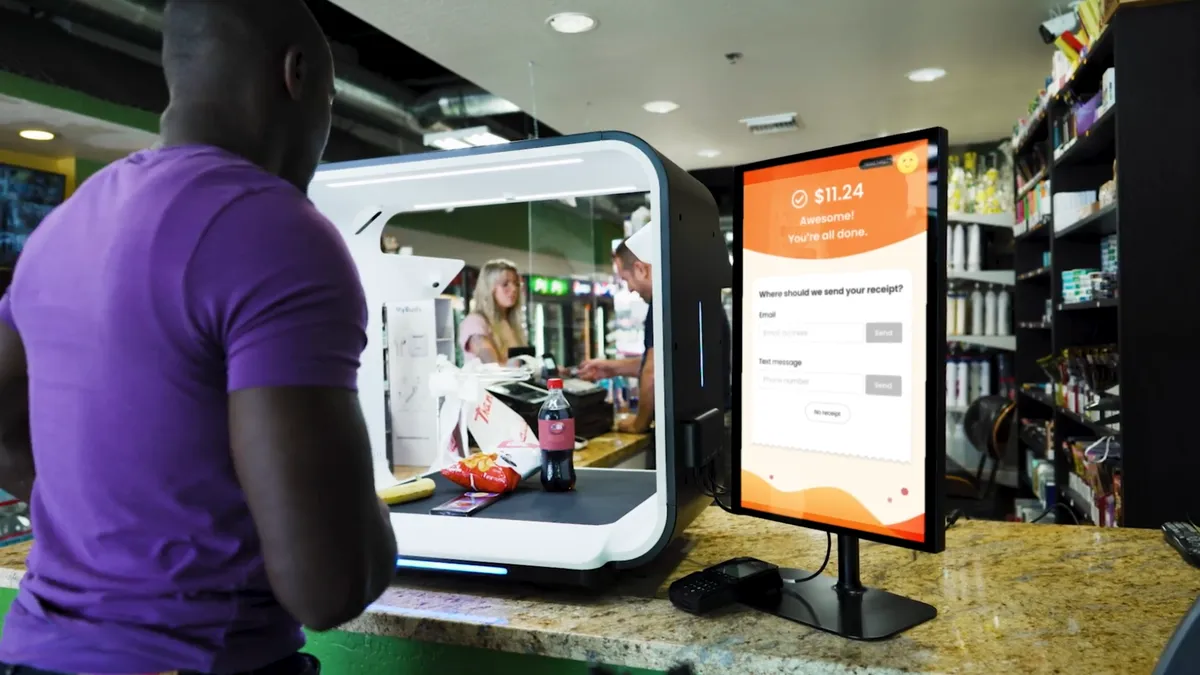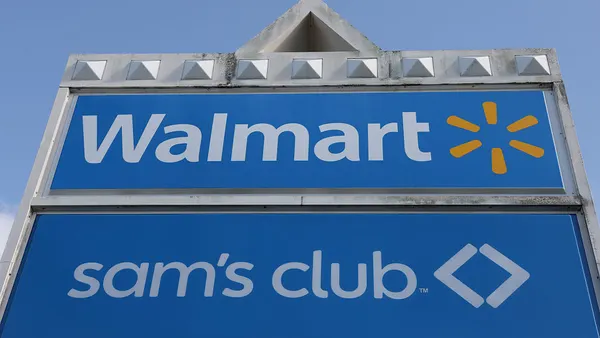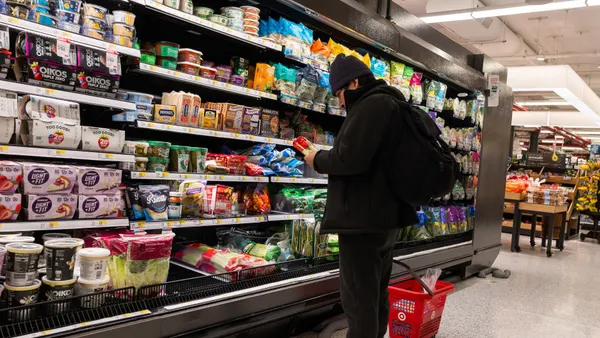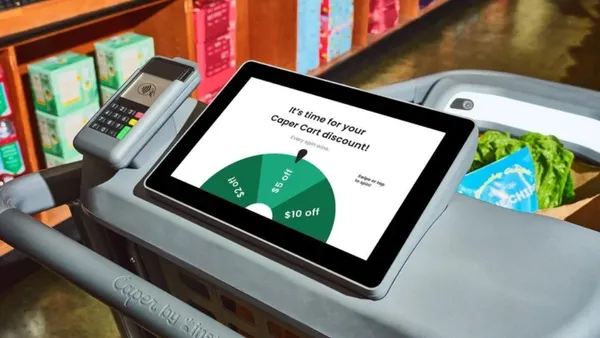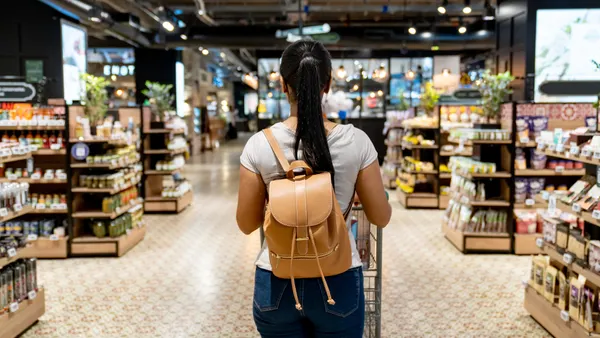Dive Brief:
- Caper has unveiled a self-contained automatic checkout unit designed for small-format food retailers that can be deployed without store modifications, the retail technology startup announced Wednesday.
- The computer-vision based unit, a scaled-down version of the company’s existing smart shopping cart for supermarkets, can be placed on a countertop and needs only electricity and wireless data connectivity to function.
- Caper is one of several companies jockeying for attention as the nascent market for technology to simplify retail stores' checkout experience takes shape.
Dive Insight:
With the Caper Counter, Caper is looking to stand out in the autonomous-checkout field by concentrating on equipment that retailers can add without having to incur the expense and inconvenience of modifying their stores.
The company’s new all-in-one device, which is aimed at stores that carry fewer than 10,000 SKUs and occupy less than 10,000 square feet, features built-in, AI-driven cameras that can instantly recognize products. It also features a traditional payment terminal. The checkout system has already been deployed at an undisclosed number of locations in a convenience store chain the company would not identify.
Lindon Gao, Caper's co-founder and CEO, said the company determined early on that store operators would be interested in autonomous checkout technology that could be installed with minimal interruptions to their operations. “It’s about bringing a technology that is most practical that brings a seamless experience to the customers while generating tangible ROI for retailers,” he said.
Gao, a serial entrepreneur who launched his first business at age 14 and spent several years in investment banking before starting New York-based Caper, is positioning the Caper Counter as a way for retailers to replace standard self-checkout technology with a system that is easier and more pleasant for consumers.
“With our experience talking to customers and shoppers, their biggest issue is not that they have to bring the item to the counter,” Gao said. “Their biggest issue is having to scan each one of these items and have the self-checkout yell at you while you're checking out.”
Caper initially approached retailers with the idea of developing a computer vision-equipped shopping basket based on its smart cart for grocery stores, but learned that smaller retailers preferred an autonomous checkout solution that customers didn't have to carry around the store with them.
Caper’s smart shopping cart, meanwhile, which is geared toward supermarket shopping, can handle about 70 pounds of items and is about 50% bigger than the Dash Cart Amazon introduced in July, according to Gao. Last October, Canadian grocer Sobeys began piloting the cart, which identifies products as they are placed in it and has an on-board payment terminal to allow customers to leave without stopping at a checkout station. Caper has also deployed the smart cart at a grocery store in New York.
Caper is stepping up efforts to bring its technology to supermarkets. The company intends to announce a partnership with a company Gao described as “one of the largest grocery chains in the U.S.” in late October or early November.
Caper is also prepared to adapt the Caper Counter, which in its current form is designed to handle up to 10 items at a time, to manage larger orders in supermarkets in place of traditional self-checkout technology, Gao said.
In addition to Amazon, Caper faces competition from a range of other companies that have also developed methods to use artificial intelligence and machine learning to automate the checkout process. This includes Standard, which has deployed its cashierless technology with retailers including convenience store giant Circle K, and Grabango, the developer of cashierless technology launched commercially by Giant Eagle in September.
Caper has raised more than $14 million in funding from investors including Lux Capital, First Round Capital, Y Combinator and Instacart co-founder Max Mullen.



